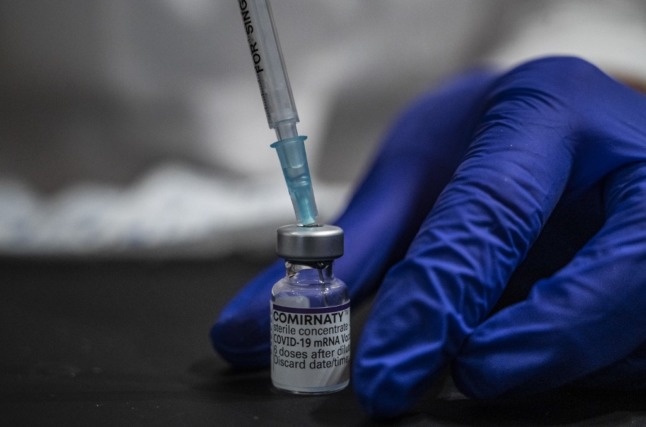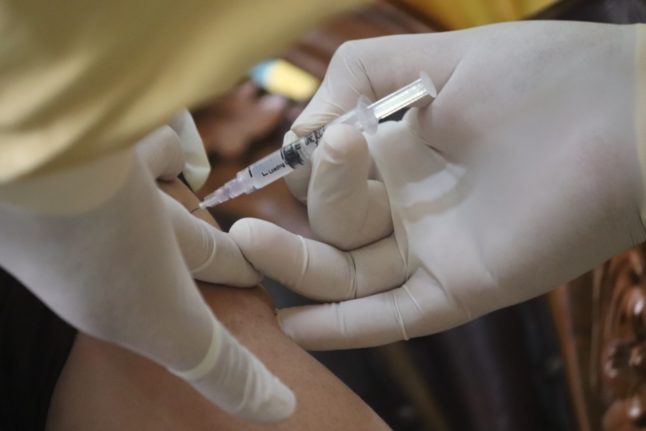In total, 78 percent of the Austrian population have some form of protection against the virus because 14 percent have had a confirmed Covid infection, most of whom were not vaccinated.
Vaccination rates are higher among people born in Austria, at 70.4 percent, than those born outside Austria, at 64.4 percent (although it’s worth noting that Austria does not currently recognise some vaccines used in other countries, including notably the Sputnik vaccine used widely in Russia and neighbouring Hungary for example).
OPINION: Austria’s vaccine mandate is politically high-risk with limited benefits
But there are also significant differences among international residents depending on country of origin.
People born in the Czech Republic (74 percent vaccination rate), Germany (73.1 percent), Afghanistan (73 percent) and Italy (71.1 percent) were all more likely than native Austrians to be vaccinated, while eight countries had vaccination rates below 60 percent: Slovenia, Croatia, Serbia, Hungary, Slovakia, Poland, Russia and Romania.
Again, the use of different vaccinations in these countries likely plays a role as several foreign residents travelled to their home countries to get the Covid vaccine. Statistics Austria also notes: “The proportion of children and young people among non-Austrian nationals is higher than among people born abroad” and that children have a lower vaccination rate.
EXPLAINED: How to claim your 100 euro vaccination bonus in Austria
There was also a link between level of education and vaccination willingness. Among people of working age (25 to 64), the rate of vaccination was just below 82 percent for those with a university degree, compared to 69% for those whose highest level of education was completing compulsory education.
The statistics also show that people who are employed have a higher vaccination rate at 76 percent than people who are unemployed, at 71 percent.
People working in international organisations (such as embassies or the UN) had the highest vaccination rate at 84.6 percent, followed by those working in information and communication (83.4 percent), public administration (82.1 percent) and finance or insurance (81.8 percent). The professions with the lowest rate of vaccination were construction (67.6 percent), agriculture and forestry (69.6 percent) and working in private households (69.7 percent).
Vaccination rates were higher among older age groups, with rates above 80 percent for over-60s, and between 70 to 80 percent for people aged between 15 and 59.
And the statistics showed that 42 percent of children aged 10 to 14 had received the Covid-19 vaccine, along with 18.4 percent of those aged five to nine. Around 20 percent of children in these age groups had been infected with Covid and not vaccinated, likely leaving them with some level of protection against the virus.
At the start of the month Austria became the first EU country to introduce a law making vaccination against Covid-19 mandatory. However, it has not yet started issuing fines or carrying out checks on vaccine status, and it looks increasingly unlikely that this will happen as the country plans to remove most Covid measures from March 5th.



 Please whitelist us to continue reading.
Please whitelist us to continue reading.
What an unnecessary headache for her citizens. Hope they feel it was worth it in the end.